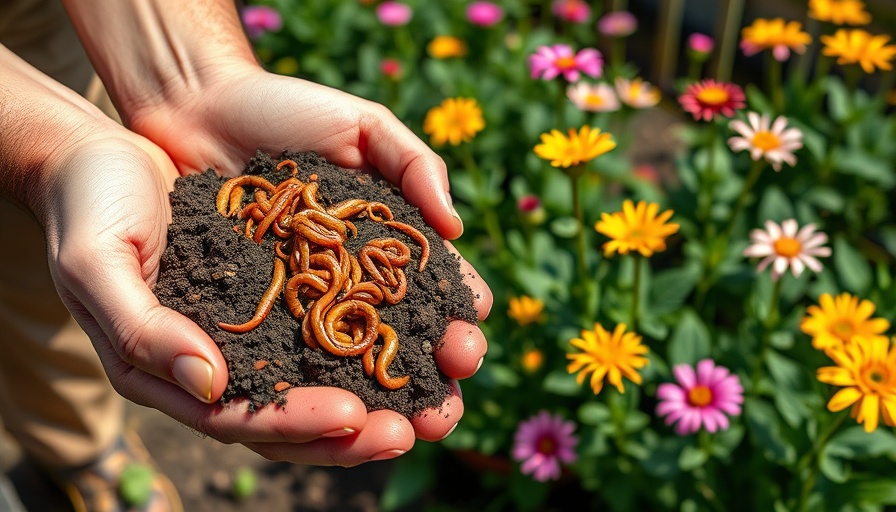
The Transformative Power of Worm Composting
Worm composting, or vermicomposting, has grown in popularity among urban farmers and gardeners looking to reduce waste and enhance soil fertility. This sustainable practice not only helps in recycling organic waste but also produces nutrient-rich fertilizer that benefits plants greatly. For those who wish to adopt a more eco-friendly approach to gardening, understanding the mechanics and myriad benefits of worms is a crucial step.
Why Worms Are Essential for Soil Health
Worms play a pivotal role in cultivating healthy soil. When they burrow in the earth, they aerate the soil, which is critical for plant growth. This aeration process allows water, oxygen, and nutrients to penetrate deeper into the soil and reach plant roots more effectively. The presence of healthy worms signifies a thriving ecosystem, as they help convert organic matter into rich compost, enhancing soil structure. This biological activity nurtures a community of beneficial soil microbes that further enrich plants.
Household Benefits: Simplifying Organic Waste Disposal
Not only do worms work wonders in the garden, but they also contribute significantly to household waste reduction. Almost any leftover organic material from your kitchen can be fed to worms—excluding dairy and oily products that might attract pests. Worms breakdown fruits and vegetables, turning them into nutrient-dense fertilizer that will nourish your garden and keep your pantry tidy. This practice helps homeowners embrace the principles of sustainable agriculture while creating a self-sufficient gardening cycle.
Choosing the Right Worms for Your Composting Needs
When starting out with worm composting, it’s important to select the right species for your needs. The most commonly used worms are red wigglers due to their efficiency in breaking down organic materials and their ability to thrive in confined spaces. By understanding the characteristics of different worm species, you can optimize your composting system effectively, leading to a more productive garden.
Debunking Myths: Understanding Vermicomposting
Many people shy away from composting due to misconceptions about odors, pests, or the perceived difficulty of the process. However, when done correctly, vermicomposting is virtually odorless and can be managed easily within any household setup. Public awareness campaigns around urban gardening have helped demystify these concerns, encouraging a wider audience to join the movement towards sustainable living.
Future Trends in Urban Vermicomposting
As urban farming continues to expand, the role of worm composting is likely to become even more critical. Innovations in vertical gardening and rooftop farming create new opportunities for integrating these practices into limited spaces. Homeowners can discover how to efficiently utilize their living areas to contribute positively to their communities and the environment.
Empowering Sustainable Communities Through Education
Education is key for those looking to delve into vermicomposting. Community gardening workshops often emphasize the importance of local agriculture, and individuals looking to adopt these practices can engage with others who share a similar passion. By learning together, communities can build resilience, teach eco-friendly practices, and foster a deeper connection with the food they grow.
Taking Action: Start Your Vermicomposting Journey
As you consider your composting options, remember that even a small number of worms can create a significant impact in your garden. Worm composting not only provides free fertilizer but also cultivates a more sustainable lifestyle, allowing you to reap the full rewards of your gardening endeavors. Embrace this methodology and transform your waste into wealth, while fostering a robust ecosystem that supports your plants.
Start your journey towards sustainable agriculture today by exploring local workshops or online communities focused on urban gardening and composting. As you engage with others enthusiastic about these practices, you will find a shared sense of purpose and excitement. Whether you are in an urban setting or have a backyard, the benefits of worm composting are within your reach. Let’s nurture our environment, one worm at a time!
 Add Row
Add Row  Add
Add 




 Add Row
Add Row  Add
Add 

Write A Comment